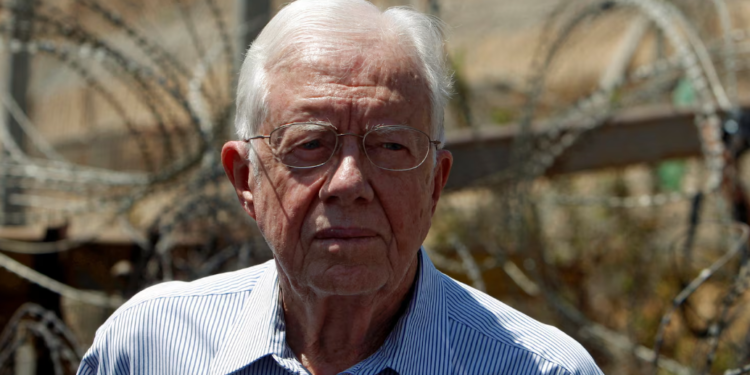Dec 31, 2024 Story by: Editor
Former U.S. President Jimmy Carter, who passed away on Sunday at the age of 100, made an indelible mark on the federal judiciary during his single term in office by appointing an unprecedented number of women and people of color to the bench. Although Carter never had the opportunity to appoint a U.S. Supreme Court justice, he selected 262 life-tenured judges for lower courts—a record for a single term—reflecting his commitment to diversifying a judiciary historically dominated by white men.
Among his notable appointments was Ruth Bader Ginsburg, whom Carter placed on the U.S. Court of Appeals for the District of Columbia Circuit in 1980. Ginsburg later joined the Supreme Court in 1993, appointed by President Bill Clinton. Reflecting on Carter’s impact, Ginsburg stated at a 2015 event, “After Carter, things never went back to the old ways. The first time I ever thought of being a judge was when Jimmy Carter announced to the world that he wanted to change the complexion of the U.S. judiciary, which he did.”
Stephen Breyer, another of Carter’s appellate court appointees, also ascended to the Supreme Court, nominated by President Clinton in 1994.
Before Carter’s presidency, only eight women and 31 people of color had served as federal judges. During his four years in office, he significantly expanded these numbers, appointing 40 women and 57 people of color, including eight women of color. His efforts were facilitated by the Omnibus Judgeship Act of 1978, which added 152 judgeships to the federal judiciary.
Although presidents with two terms, such as Donald Trump and Joe Biden, have surpassed Carter’s total number of judicial appointments, he remains unmatched for appointments during a single term. Biden, with 235 confirmed judicial appointments as of Dec. 21, 2024, ranks second.
Maya Wiley, president of the Leadership Conference on Civil and Human Rights, praised Carter’s contributions, stating, “As president, Jimmy Carter recognized the devastating lack of representation in our federal courts and prioritized diversifying the judiciary.”
Carter himself reflected on his legacy at a 2012 Carter Center event, expressing that his actions aligned with the nation’s readiness for change. “I did not feel what I did required any sort of political courage because I think the nation was ready for it,” he said, as quoted by the Atlanta Journal-Constitution. However, he acknowledged that “we still have a long way to go.”
Carter’s transformative efforts continue to shape the federal judiciary, leaving a legacy that underscores the importance of representation in the nation’s courts. Source: Reuters
















